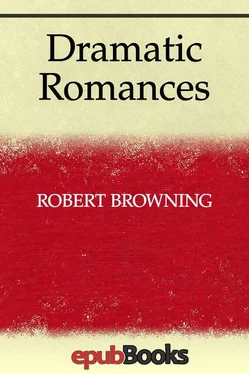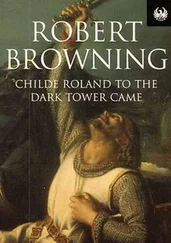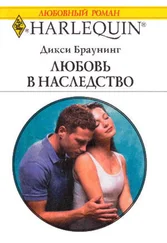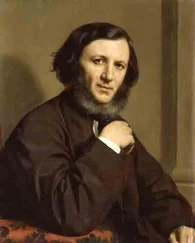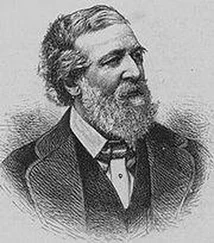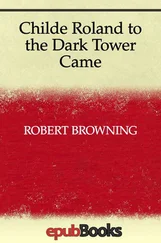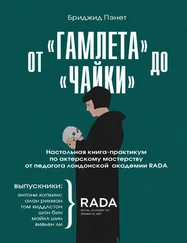Роберт Браунинг - Dramatic Romances
Здесь есть возможность читать онлайн «Роберт Браунинг - Dramatic Romances» весь текст электронной книги совершенно бесплатно (целиком полную версию без сокращений). В некоторых случаях можно слушать аудио, скачать через торрент в формате fb2 и присутствует краткое содержание. Год выпуска: 2014, Издательство: epubBooks Classics, Жанр: Поэзия, на английском языке. Описание произведения, (предисловие) а так же отзывы посетителей доступны на портале библиотеки ЛибКат.
- Название:Dramatic Romances
- Автор:
- Издательство:epubBooks Classics
- Жанр:
- Год:2014
- ISBN:нет данных
- Рейтинг книги:3 / 5. Голосов: 1
-
Избранное:Добавить в избранное
- Отзывы:
-
Ваша оценка:
- 60
- 1
- 2
- 3
- 4
- 5
Dramatic Romances: краткое содержание, описание и аннотация
Предлагаем к чтению аннотацию, описание, краткое содержание или предисловие (зависит от того, что написал сам автор книги «Dramatic Romances»). Если вы не нашли необходимую информацию о книге — напишите в комментариях, мы постараемся отыскать её.
Dramatic Romances — читать онлайн бесплатно полную книгу (весь текст) целиком
Ниже представлен текст книги, разбитый по страницам. Система сохранения места последней прочитанной страницы, позволяет с удобством читать онлайн бесплатно книгу «Dramatic Romances», без необходимости каждый раз заново искать на чём Вы остановились. Поставьте закладку, и сможете в любой момент перейти на страницу, на которой закончили чтение.
Интервал:
Закладка:
Dramatic Romances
Robert Browning
Introduction
The Dramatic Romances, enriched by some of the poems originally printed in Men and Women, and a few from Dramatic Lyrics as first printed, include some of Browning's finest and most characteristic work. In several of them the poet displays his familiarity with the life and spirit of the Renaissance—a period portrayed by him with a fidelity more real than history—for he enters into the feelings that give rise to action, while the historian is busied only with the results growing out of the moving force of feeling.
The egotism of the Ferrara husband outraged at the gentle wife because she is as gracious toward those who rendered her small courtesies, and seemed as thankful to them as she was to him for his gift of a nine–hundred–years–old name, opens up for inspection the heart of a husband at a time when men exercised complete control over their wives, and could satisfy their jealous, selfish instincts by any cruel methods they chose to adopt, with no one to say them "nay." The highly developed artistic sense shown by this husband is not incompatible with his consummate selfishness and cruelty, as many tales of that time might be brought forward to illustrate. The husband in "The Statue and the Bust" belongs to the same type, and the situation there is the inevitable outcome of a civilization in which women were not consulted as to whom they would marry, and naturally often fell a prey to love if it should come to them afterwards. Weakness of will in the case of the lovers in this poem wrecked their lives; for they were not strong enough to follow either duty or love. Another glimpse is caught of this period when husbands and brothers and fathers meted out what they considered justice to the women in "In a Gondola." "The Grammarian's Funeral" gives also an aspect of Renaissance life—the fervor for learning characteristic of the earlier days of the Renaissance when devoted pedants, as Arthur Symons says in referring to this poem, broke ground in the restoration to the modern world of the civilization and learning of ancient Greece and Rome. Again, "The Heretic's Tragedy" and "Holy–Cross Day" picture most vividly the methods resorted to by the dying church in its attempts to keep control of the souls of a humanity seething toward religious tolerance.
With only a small space at command, it is difficult to decide on the poems to be touched upon, especially where there is not one but would repay prolonged attention, due no less to the romantic interest of the stories, the marvellous penetration into human motives, the grasp of historical atmospheres, than to the originality and perfection of their artistry.
A word must be said of "The Flight of the Duchess" and "Childe Roland to the Dark Tower Came," both poems which have been productive of many commentaries, and both holding their own amid the bray [sic] of critics as unique and beautiful specimens of poetic art. Certainly no two poems could be chosen to show wider diversity in the poet's genius than these.
The story told by the huntsman in "The Flight of the Duchess" is interesting enough simply as a story, but the telling of it is inimitable. One can see before him the devoted, kindly man, somewhat clumsy of speech, as indicated by the rough rhymes, and characteristically drawing his illustrations from the calling he follows. Keen in his critical observation of the Duke and other members of the household, he, nevertheless, has a tender appreciation of the difficulties of the young Duchess in this unloving artificial environment.
When the Gypsy Queen sings her song through his memory of it, the rhymes and rhythm take on a befitting harmoniousness and smoothness contrasting finely with the remainder of the poem.
By means of this song, moreover, the horizon is enlarged beyond the immediate ken of the huntsman. The race–instinct, which has so strong a hold upon the Gypsies, is exalted into a wondrous sort of love which carries everything before it. This loving reality is also set over against the unloving artificiality of the first part of the poem. The temptation is too strong for the love–starved little Duchess, and even the huntsman and Jacinth come under her hypnotic spell.
Very different in effect is "Childe Roland to the Dark Tower Came." The one, rich in this lay of human emotion, couched in the simple language of reality; the other, a symbolic picture of the struggle and aspiration of the soul. Interpreters have tried to pin this latter poem down to the limits of an allegory, and find a specific meaning for every phrase and picture, but it has too much the quality of the modern symbolistic writing to admit of any treatment so prosaic. In this respect it resembles music. Each mind will draw from it an interpretation suited to its own attitude and experiences. Reduced to the simplest possible lines of interpretation, it symbolizes the inevitable fate which drives a truth–seeking soul to see the falsity of ideals once thought absolute, yet in the face of the ruin of those ideals courage toward the continuance of aspiration is never for a moment lost.
As a bit of art, it is strikingly imaginative, and suggests the picture–quality of the tapestried horse, which Browning himself says was the chief inspiration of the poem. It is a fine example of the way in which the "strange and winged" fancy of the poet may take its flight from so simple an object as this tapestried horse, evidently a sorry beast too, in its needled presentment, or the poetic impulse would not have expressed itself in the vindictive, "I never saw a horse [sic] I hated so."
Incident of the French Camp
I
You know, we French stormed Ratisbon:
A mile or so away,
On a little mound, Napoleon
Stood on our storming–day;
With neck out–thrust, you fancy how,
Legs wide, arms locked behind,
As if to balance the prone brow
Oppressive with its mind.
II
Just as perhaps he mused, "My plans
That soar, to earth may fall, 10
Let once my army–leader Lannes
Waver at yonder wall."
Out 'twixt the battery–smokes there flew
A rider, bound on bound
Full–galloping; nor bridle drew
Until he reached the mound.
III
Then off there flung in smiling joy,
And held himself erect
By just his horse's mane, a boy:
You hardly could suspect 20
(So tight he kept his lips compressed
Scarce any blood came through)
You looked twice ere you saw his breast
Was all but shot in two.
IV
"Well," cried he, "Emperor, by God's grace
"We've got you Ratisbon!
"The Marshal's in the market–place,
And you'll be there anon
To see your flag–bird flap his vans
Where I, to heart's desire, 30
Perched him—" The chief's eye flashed; his plans
Soared up again like fire.
V
The chief's eye flashed, but presently
Softened itself, as sheathes
A film the mother–eagle's–eye
When her bruised eaglet breathes,
"You're wounded!" "Nay," the soldier's pride
Touched to the quick, he said:
"I'm killed, Sire!" And his chief beside,
Smiling the boy fell dead. 40
NOTES:
"Incident of the French Camp." A story of modest heroism. The incident related is said by Mrs. Orr to be a true one of the siege of Ratisbon by Napoleon in 1809—except that the real hero was a man.
I. Ratisbon: (German Regensburg), an ancient city of Bavaria on the right bank of the Danube, has endured seventeen sieges since the tenth century, the last one being that of Napoleon, 1809.
II. Lannes: Duke of Montebello, one of Napoleon's generals.
The Patriot
Интервал:
Закладка:
Похожие книги на «Dramatic Romances»
Представляем Вашему вниманию похожие книги на «Dramatic Romances» списком для выбора. Мы отобрали схожую по названию и смыслу литературу в надежде предоставить читателям больше вариантов отыскать новые, интересные, ещё непрочитанные произведения.
Обсуждение, отзывы о книге «Dramatic Romances» и просто собственные мнения читателей. Оставьте ваши комментарии, напишите, что Вы думаете о произведении, его смысле или главных героях. Укажите что конкретно понравилось, а что нет, и почему Вы так считаете.
